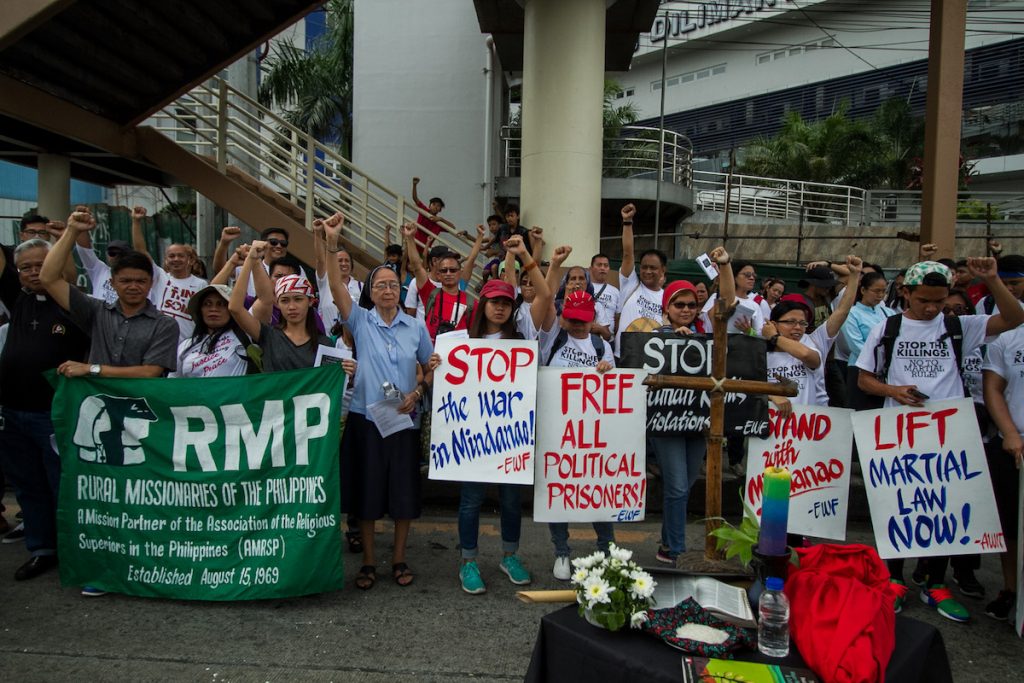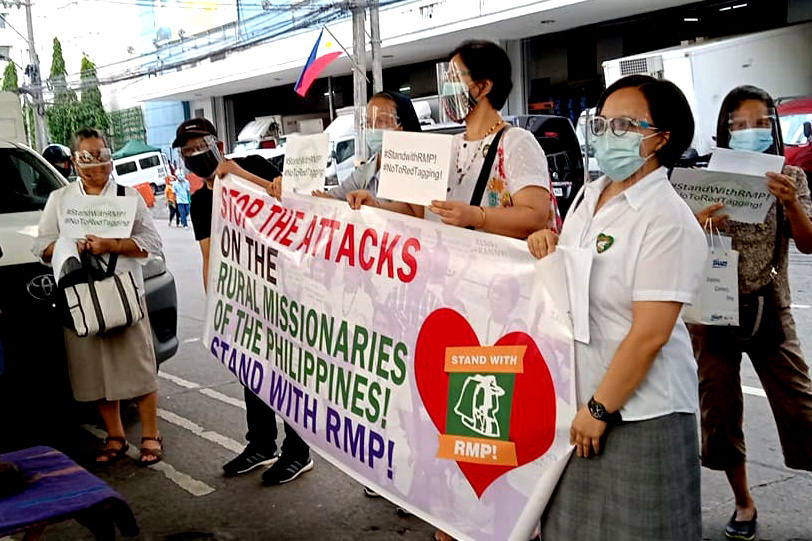Church groups staged a demonstration in Manila on Friday, June 11, to call on the country’s Supreme Court to lift the freeze order on the bank accounts of the Rural Missionaries of the Philippines (RMP).
“The current predicament of RMP … denies much-needed services to poor communities,” said Bishop Emergencio Padillo of the United Church of Christ in the Philippines (UCCP).
“The poor are the ones who will suffer most,” said the Protestant bishop, adding that the RMP “should be respected for their decades of service to the poor.”
The Philippines’ Anti-Money Laundering Council has also frozen the bank accounts of UCCP’s Haran Center for allegedly financing terrorist organizations.
The RMP is a religious organization, which is inter-congregational and inter-diocesan in character, of religious women and men, priests, and lay people that was founded on Aug. 15, 1969.
It is a “mission partner” of the Association of Major Religious Superiors in the Philippines.
The group is currently under scrutiny of the Philippine government for alleged terrorism financing and for allegedly being an aboveground communist organization.
In a statement, the Protestant UCCP said it stands “in solidarity” with the RMP “during this time of persecution.”
UCCP’s Bishop Padillo said noted the “long history of religious, clergy, and lay RMP missionaries serving with peasants, farmworkers, indigenous peoples, and fisherfolk communities.”
“They have been instrumental in bringing health, literacy, and livelihood programs to some of the poorest and most marginalized areas of the country,” said the Protestant bishop.
He said the “absurd allegations of ‘terrorism financing’ only unmask how far this government is prepared to go … to stifle dissent, and in the process, [undermine] democracy.”
“The [RMP] has been ‘red-tagged,’ but clearly they are engage in mission work that seeks to create a more just and life-giving situation in under-served areas,” said Rev. Callum Tabada, a Protestant pastor.
He said “malicious legal maneuvers … are intended to weaken the ministries of the Church that are trying to help communities to empower themselves and protect their interests and welfare,” he added.
“Church ministries are under attack because rural communities are easier to dominate when they are less educated and aware of their rights,” said Rev. Tabada.

RMP’s bank accounts were first ordered frozen in December 2019 for “probable cause” of being “related to terrorism financing.”
In an earlier statement, the RMP expressed its “utmost dismay,” saying that the decision “greatly encumbers our mission to collectively witness and act as Christ’s disciples with the rural poor.”
“These accounts were created and maintained for completed and ongoing projects of RMP as well as for its internal operations,” said the organization.
It also denied involvement “in any form of financing terrorism,” adding that donations and funding received by the organization are used to implement projects and programs to help the poor.
“We have our mission and community partners to confirm this,” said the group.
“In freezing our bank accounts, the AMLC is only depriving the rural poor of the help and services they deserve and that the government refuses to provide,” it added.
“We’ve been accused of being a communist and terrorist front. Our members have been harassed and threatened, forcing some of them to seek sanctuary elsewhere,” read the group’s statement.
Several senior RMP members have also been charged with various crimes including perjury, arson, kidnapping, robbery and frustrated murder.
Several tribal schools that were established or run by the organization in the southern Philippine region of Mindanao have been closed.







